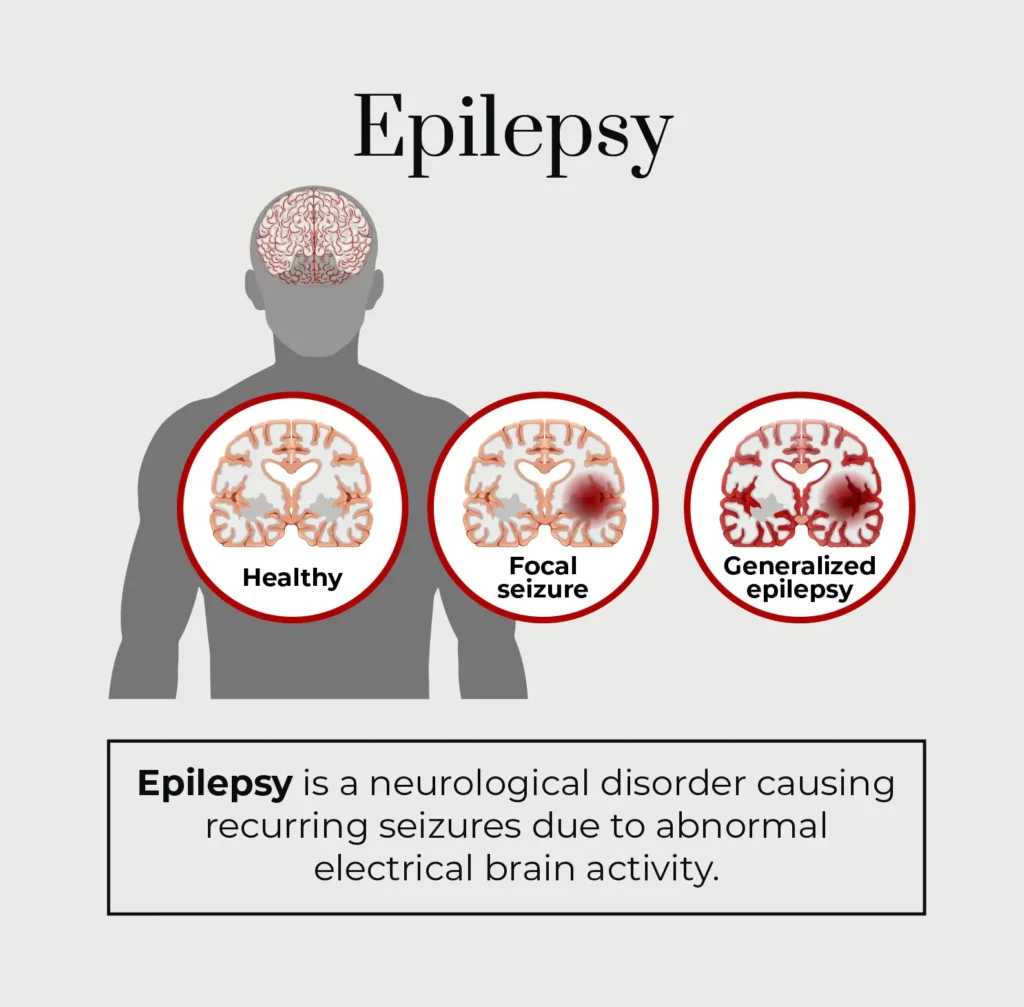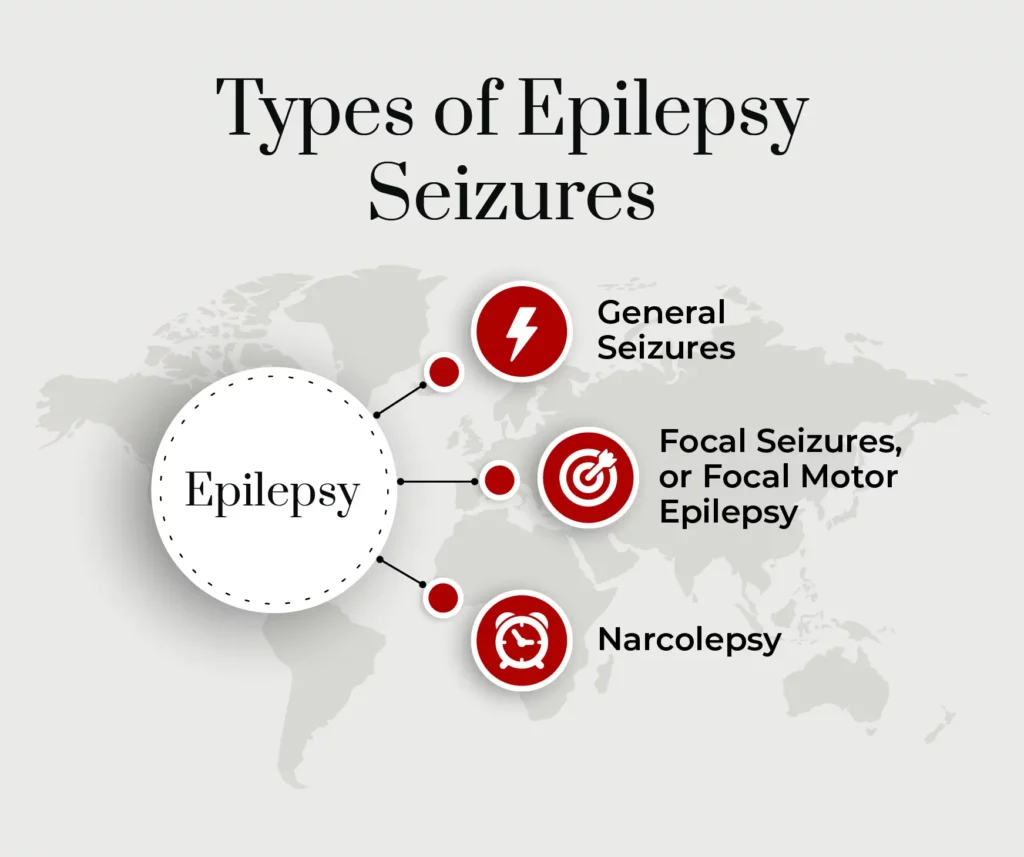Epilepsy (and seizures) are a compensable condition by the U.S. Department of Veterans Affairs (the VA). Epilepsy VA ratings range from 10% to 100%.
Here, we describe how the VA assigns disability ratings for epilepsy and seizures, how you can apply for veterans disability benefits for service-connected epilepsy or other seizure conditions, what epilepsy is, and how it relates to other seizures.If you want to obtain a VA rating for epilepsy, call Stone Rose Law at (480) 498-8998 or use our contact form.

The VA rates epilepsy and seizure conditions according to 38 CFR § 4.124a. If the VA approves your benefits claim, you can receive one of the following epilepsy VA ratings: 10%, 20%, 40%, 60%, 80%, or 100%.
The epilepsy VA disability rating you receive will depend on two main factors: the number of seizures you experience in a one-year period, and the severity of the seizures (major or minor).
All epileptic and seizure disorders are rated according to the following criteria:
| VA Disability Rating | Minor Seizures (Petit Mal) and Frequency | Major Seizures (Grand Mal) and Frequency |
| 10% Disability Rating | Requires constant medication to control seizures; or You have a definite or confirmed diagnosis of epilepsy with a history of seizures | Requires constant medication to control seizures; or You have a definite or confirmed diagnosis of epilepsy with a history of seizures |
| 20% Disability Rating | 2 in the past 6 months | 1 in the past 2 years |
| 40% Disability Rating | 5 to 8 per week | At least 1 in the past 6 months, or 2 in the past year |
| 60% Disability Rating | 9 or 10 per week | An average of 1 every 4 months over the past year |
| 80% Disability Rating | 11 or more per week | 4 to 11 in the past year, averaging on seizure every 3 months |
| 100% Disability Rating | Not applicable | 12 or more in the past year |
If your epilepsy disability does not qualify for a 100% VA disability rating, you may still qualify for total disability monthly compensation under TDIU.
TDIU VA benefits depend on whether you meet the following criteria:
To get a better understanding of how the VA calculates combined disability ratings, see our VA Disability Calculator.
In some cases, the VA may also consider you for TDIU total disability if your epilepsy symptoms are so severe and unique that they amount to a total disability even if you cannot qualify for schedular TDIU.
You can make a claim for epilepsy VA benefits based on a primary or secondary service connection.
To make a successful claim primary service connection claim for VA disability benefits for epilepsy, you need to show the following to the VA:
To diagnose epilepsy, a medical doctor must have witnessed a seizure event, have performed neurological testing on you, and have documented the frequency and severity of your seizure symptoms.
Your doctor can use the VA Disability Benefits Questionnaire for Epilepsy when diagnosing your epilepsy condition and documenting the medical nexus.
If you already have a rating for a VA disability, then you may be able to establish a secondary service connection claim.
For example, one way to establish a secondary service connection would be if you have a VA disability rating for traumatic brain injury and can establish a connection between this disability and the development of your epilepsy condition.
It is not uncommon for the VA to reject an initial disability benefits claim. If this happens to you, then you have different ways to appeal the VA decision:
Although it is possible to make an initial benefits claim on your own, if you must appeal a denied claim, we recommend that you hire an experienced VA appeals lawyer who can help you through the appeals process.
Epilepsy is a disorder of the central nervous system and the fourth most common neurological disorder in the world. During an epilepsy episode, you may experience unprovoked seizures that result from abnormal electrical brain activity.
Epilepsy describes a neurological disorder. A seizure is a single event that occurs as part of a broader neurological disorder. A seizure is a symptom of epilepsy.
For disability rating purposes, the VA does not distinguish between epilepsy and seizures.
Your doctor may make a confirmed diagnosis that you have epilepsy if you have two unprovoked seizures, or one unprovoked seizure with a high risk of more seizures.
Although epilepsy can be related to physical causes, like a traumatic brain injury or a stroke, in many cases, it has no known origin. Genetic factors, cerebral palsy, infectious diseases, or other sources may cause epilepsy.
Some of the common sources of epilepsy in veterans include:
An epilepsy seizure can result in any of the following manifestations:
Seizures can be categorized into two main groups: general and focal.
General seizures can occur as any of several subtypes:
Focal seizures can take the form of simple partial seizures (focal onset aware seizures) and complex partial seizures (focal onset impaired awareness seizures).
Narcolepsy is not technically an epilepsy condition caused by abnormal brain electrical activity. It is actually a sleep disorder. Still, the VA assigns it the same diagnostic code as petit mal epilepsy, code 8911.
Daytime symptoms of narcolepsy can include excessive daytime sleepiness, drowsiness, sudden muscle weakness that can cause drooping of the limbs and head, impaired vision and speech, and momentary paralysis.

If you need help filing a claim or appealing a denied claim for an epilepsy VA rating, then you need a VA disability benefits attorney from Stone Rose Law.
The veterans’ benefits attorneys at Stone Rose Law have the knowledge and experience to help you file your initial claim, supplemental claim, or denied claim appeal.Call Stone Rose Law at (480) 498-8998 today to talk with one of our VA-accredited attorneys, or use our contact form to ask a question or schedule a free initial consultation.